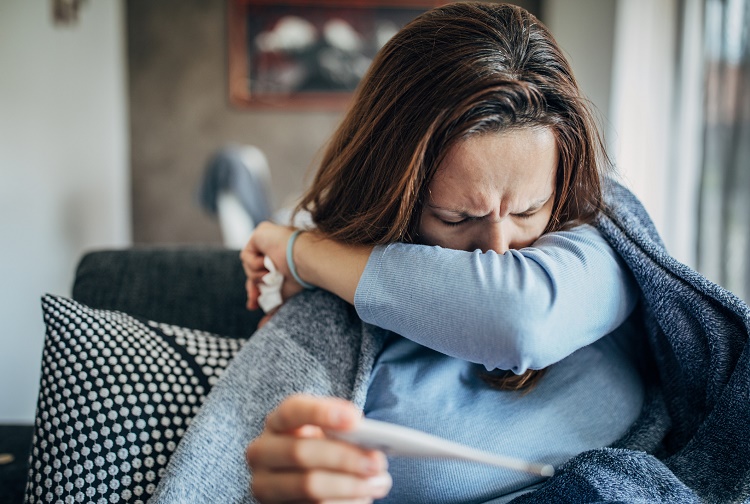
Johnson & Johnson (J&J) vaccine and Guillain-Barré syndrome: What’s the connection?
News reports discuss a possible link to the disease.
July 14, 2021 Photo: Getty Images
Photo: Getty Images
Recent reports of a possible link between the Johnson & Johnson (J&J) vaccine and Guillain-Barré syndrome have raised concerns about the safety of the vaccine. Here, Dr. Michael Stevens, an infectious disease expert at VCU Health, explains what’s known so far.
 What is Guillain-Barre syndrome, and can you get it from the J&J vaccine?
What is Guillain-Barre syndrome, and can you get it from the J&J vaccine?
Guillain-Barré syndrome (GBS) is a rare autoimmune disease in which your body's immune system damages your nerves. It causes muscle weakness and sometimes paralysis. Symptoms are mostly temporary and typically last anywhere from a few weeks to several years. Most people recover fully, but some have lasting nerve damage.
The vaccine safety systems picked up reports of about 100 people developing Guillain-Barré syndrome after receiving the one-dose Johnson & Johnson (J&J) vaccine. That’s when the Food and Drug Administration (FDA) and the Centers for Disease Control and Prevention (CDC) reviewed the data and issued a safety warning.
How high is your risk of developing Guillain-Barré syndrome?
Your risk is very low. The number of cases reported in connection with the J&J vaccine represents a tiny fraction of the nearly 13 million Americans who have received the one-dose shot. Most cases were reported in men — many 50 years old and up — and usually about two weeks after vaccination.
A number of infections can trigger Guillain-Barré, including the flu and the Zika virus. The good news is that our vaccine safety systems work. They detect even the smallest adverse reactions among the millions of vaccinations, so that federal health officials can review them.
Is it safe to get the J&J vaccine, given the latest information?
State and federal officials are continuing to offer the J&J vaccine in our fight against COVID-19 and don’t see any reason to discontinue the vaccine at this point. The main purpose of federal warnings related to extremely rare side effects is to help people make an informed decision when offered the J&J vaccine.
All three of the vaccines currently authorized for emergency use by the FDA (Pfizer, Moderna and Johnson & Johnson), have been shown largely effective against preventing serious illness and death due to COVID-19.
If you received the J&J vaccine, what should you look out for?
Common side effects after receiving any vaccine include muscle pain, tiredness, fever and redness or pain at the injection side. These are normal and should go away within a few days.
If, however, you received the Johnson & Johnson vaccine and experience:
- Weakness or tingling, especially in your arms or legs, that are persistent, getting worse and spreading
- Problems walking, speaking, chewing or swallowing
- Loss of bladder or bowel control, or
- Persistent double vision or an inability to move your eyes
the FDA recommends calling 911 right away These symptoms could be related to Guillain-Barré syndrome. Please note, though, that your risk of developing Guillain-Barré syndrome is very low.
For more information
For a variety of news and information on COVID-19 and how VCU Health is keeping patients safe, please visit our COVID-19 News Center.



